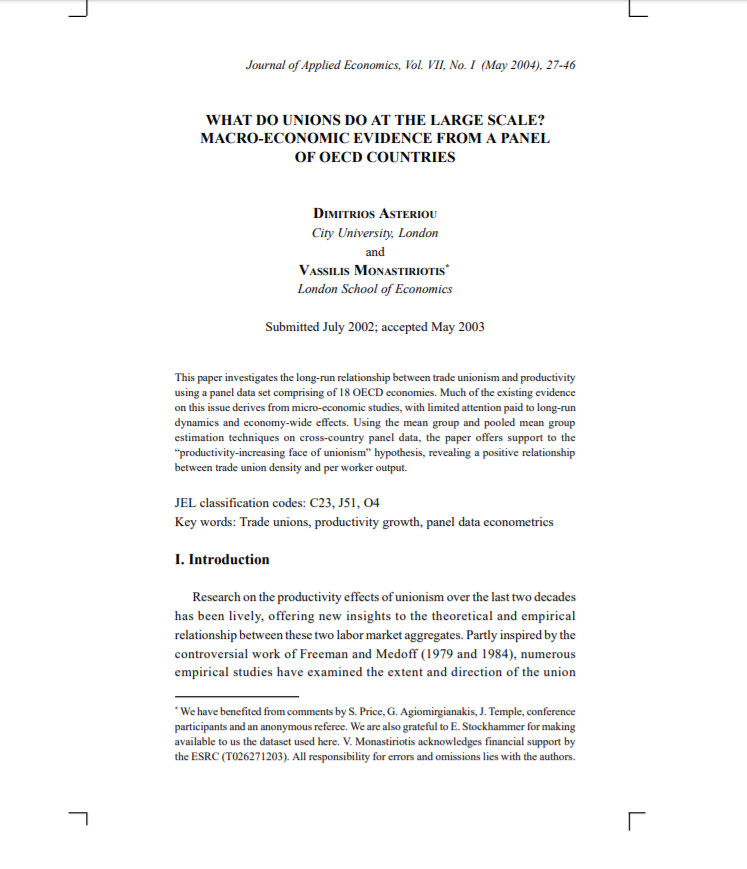
Abstract
This paper empirically studies union effects on the performance of, and employment relations in, China’s private enterprises. The study finds a positive and statistically significant union effect on labor productivity, but not on profitability. It further finds that unions lead to better employee benefits and increased contract signing in employment. These findings suggest that, in the era of transition from a centrally planned to a market economy, unions in China’s private enterprises do promote workers’ interests as unions do in other economies. And they do that without abandoning their traditional role of harmonizing employment relations, as required by the Party.
For the original source, please click here.







